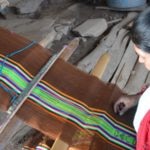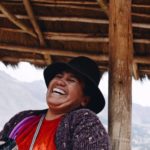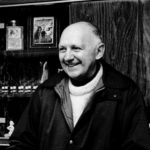In the “fourth world” you aren’t poor, you’re living in poverty
No one is poor, even though 836 million people are extremely poor, and are sick from poverty, hungry from poverty, unequal from poverty and silenced by poverty, according to the United Nations Development Programme (UNDP).

People don’t choose to be poor. We can choose its definition as a sociological, economic, historical, anthropological phenomenon and spend many words and sources doing so, but if there is something that is not subject to debate in this topic it is the effects of poverty. One in three people in the world do not have a toilet. It sounds direct and graphic. The United Nations released this data and did so by recording the message on rolls of toilet paper in the bathrooms at the headquarters of the General Assembly.

The United Nations released this data and did so by recording the message on rolls of toilet paper in the bathrooms at the headquarters of the General Assembly
The day chosen for the first, second and even third world represented there, to receive the hygienic message was the day the new Sustainable Development Goals (SDGs) were signed.
Although they may seem ambitious to some and utopian to others, the SDGs are an institutional tool that act as a compass to accomplish the 17 goals and 169 targets that are so important to eradicate poverty, empower women, create decent work, and all the other main problems affecting the world. If you think of one, it’s probably on the list.
The BBVA Microfinance Foundation (FMBBVA) was recently recognized by the UN for its contribution to these SDGs, as “Collaboration from the productive and responsible private sector can and should play a decisive role in the fight for these social and economic challenges.” The Juan Carlos I University’s Center for Ibero-American Studies (CEIB) said this, but so has the United Nations and of course, reality itself has demonstrated that governments and NGOs alone cannot support the weight of inequality, which makes poverty endemic and more importantly: they cannot fight it either.
"Financial inclusion is crucial to decreasing vulnerability”
The World Bank maintains that three out of four poor people escape poverty thanks to individual initiatives, like starting a small business, for example.
The BBVA Microfinance Foundation, created nearly ten years ago, supports these initiatives, giving financially inclusive opportunities to vulnerable entrepreneurs - people who don’t even consider accessing credit, no matter how small, or a savings plan or a capacity building class and definitely not an ethical model based on Responsible Productive Finance, FMBBVA’s brand:
“If they want to make it, people lacking financial services have to make do with their own resources or informal sources of financing or lenders. They greatly value access to formal credit, as it improves their quality of life, their future and their families’ future. Financial inclusion is crucial to decreasing vulnerability.” Giovanni di Plácido, FMBBVA’s Director of Analysis and Strategy, tells us this. FMBBVA is a non-profit institution that serves 1.8 million people in Latin America though a group of microfinance institutions located in the region – the most unequal on the planet.

FMBBVA is a non-profit institution that serves 1.8 million people in Latin America
77% of its customers are vulnerable entrepreneurs (with per capital surpluses three times below the national poverty line), and through their efforts they have grown their sales an average of 17% annually and their assets by 25% (data from June 2016). Furthermore, after two years in the Foundation, 35% of the customers leave poverty behind.
These people demonstrate that FMBBVA’s methodology, Responsible Productive Finance, is a very effective channel in the fight against poverty, whose international day was not invented by the UN. The UN was simply responsible for acting on the plea of the humble French priest, Joseph Wresinski, whose mother was Spanish and father was Polish.

Joseph founded the “Fourth World Movement” - © ATDCUARTOMUNDO
Wresinski was someone who knew from his own experience how hurtful and humiliating destitution is, how oppressing it is to not be able to tell your hopes and dreams, how frustrating it is to not be able to show one iota of dignity. All because of poverty.
After begging for justice for the underprivileged, Joseph founded the “Fourth World Movement” to give a positive social identity to people living in poverty.
In 1975, at the Place of Human Rights and Liberties in Paris, this day and a plaque were inaugurated before tens of thousands of people from all over the world. He urged the UN to make October 17th serve as a time to at least try to remember what is written on the plaque hanging in Paris in the Trocadero plaza, now reproduced in many cities in the world: “Wherever men and women are condemned to live in poverty, human rights are violated. To come together to ensure that these rights be respected is our solemn duty.” (Father Joseph Wresinski).